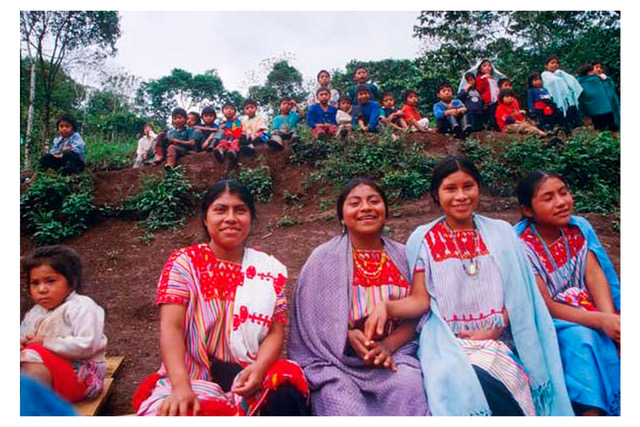Guías para la Implementación y Monitoreo de los Principios Rectores para la Colaboración y Alianzas entre Gobiernos Subnacionales, Pueblos Indígenas y Comunidades Locales del GCF Task Force México.
Con la aprobación de los Principios Rectores para la Colaboración y Alianzas entre Gobiernos Subnacionales, Pueblos Indígenas y Comunidades Locales (PR en adelante) en el 2018, los miembros del Grupo de Gobernadores por el Clima y Bosques reconocieron el impacto positivo para la conservación de los bosques y el desarrollo rural de bajas emisiones que guardan los esfuerzos organizados y colaborativos entre actores gubernamentales, los pueblos indígenas y las comunidades que usan o poseen tierras forestales. Este trabajo en conjunto es fundamental para garantizar la conservación y derechos territoriales y humanos mediante actividades y objetivos en común. Desde entonces, los retos siguientes han consistido en robustecer la implementación de los PR socializándolos en distintos foros y encuentros regionales y globales para crear estrategias que permitan potenciar el trabajo de las jurisdicciones y así acceder a financiamientos adecuados a sus necesidades.
Es en este marco de referencia en el que se crean las Guías para la Implementación y Monitoreo de los Principios Rectores del GCF TF México, las cuales buscan proyectar un escenario avanzado de implementación de los PR que permita asegurar posibilidades de financiamiento vinculadas a los diferentes requisitos de estándares y políticas de salvaguardas en Bancos Multilaterales de Desarrollo y Fondos Internacionales relacionados al Cambio Climático, con el fin de edificar referencias que permitan acceder a las jurisdicciones a financiamientos futuros.
A través de una serie de entrevistas con los delegados de las siete jurisdicciones del GCF TF México, así como con Gerencias relacionadas con el tema de bosques y cambio climático de la Comisión Nacional Forestal y una revisión documental exhaustiva, se identificaron elementos sobre la situación actual de la implementación de iniciativas REDD+ y proyectos de desarrollo rural bajos en carbono, como información clave para la elaboración de las guías.
Por lo tanto, el análisis propuesto en las guías es orientativo y apela a la responsabilidad de cada jurisdicción para identificar su pertinencia, de acuerdo con las prioridades o posibilidades de atención. Asimismo, fortalecen los elementos que permiten orientar el monitoreo y seguimiento de los PR, identificando lecciones aprendidas en procesos anteriores y áreas de oportunidad para planificar pasos siguientes hacia el logro de la sostenibilidad ambiental a través de instrumentos novedosos que fortalezcan las políticas públicas en torno al Cambio Climático.
A partir de los objetivos y las acciones implicadas en la elaboración de las guías es posible registrar los compromisos emprendidos por cada jurisdicción. Asimismo, el cumplimiento de los PR necesita de la mejora continua de acciones y procesos realizados en los gobiernos estatales, incluyendo las diferentes instancias involucradas en el Desarrollo Rural Sustentable alineadas a las metas de mitigación y adaptación al cambio climático. Las guías permiten mostrar el potencial de avance de cada Estado, además, al estar fincadas en una base perfectible y colaborativa, los procesos de trabajo se mantienen en una mejora constante.
______________________________________________________________________________________
Guidelines for the Implementation and Monitoring of the Guiding Principles for Collaboration and Partnerships between Subnational Governments, Indigenous Peoples and Local Communities of the GCF Task Force Mexico.
With the adoption of the Guiding Principles for Collaboration and Partnerships between Subnational Governments, Indigenous Peoples and Local Communities (hereafter PR) in 2018, members of the Governors’ Climate and Forests Group recognized the positive impact for forest conservation and low-emissions rural development of organized and collaborative efforts between government actors, indigenous peoples and communities that use or own forest lands. This joint work is fundamental to ensure conservation and territorial and human rights through common activities and objectives. Since then, the following challenges have consisted of strengthening the implementation of the RPs by socializing them in different forums and regional and global meetings to create strategies to strengthen the work of the jurisdictions and thus gain access to financing appropriate to their needs.
It is within this framework of reference that the Guidelines for the Implementation and Monitoring of the Guiding Principles of the GCF TF Mexico are created, which seek to project an advanced scenario for the implementation of the RPs to ensure financing possibilities linked to the different requirements of standards and safeguard policies in Multilateral Development Banks and International Funds related to Climate Change, in order to build references that will allow jurisdictions to access future financing.
Through a series of interviews with delegates from the seven jurisdictions of the GCF TF Mexico, as well as with forest and climate change managers of the National Forestry Commission and an exhaustive document review, elements on the current status of the implementation of REDD+ initiatives and low carbon rural development projects were identified as key information for the development of the guidelines.
Therefore, the analysis proposed in the guidelines is orientative and appeals to the responsibility of each jurisdiction to identify its relevance, according to the priorities or possibilities of attention. Likewise, they strengthen the elements that allow guiding the monitoring and follow-up of the RPs, identifying lessons learned in previous processes and areas of opportunity to plan next steps towards the achievement of environmental sustainability through innovative instruments that strengthen public policies on Climate Change.
Based on the objectives and actions involved in the preparation of the guidelines, it is possible to record the commitments undertaken by each jurisdiction. Likewise, the fulfillment of the RPs requires the continuous improvement of actions and processes carried out in the state governments, including the different instances involved in Sustainable Rural Development aligned with the goals of mitigation and adaptation to climate change. The guidelines show the potential for progress in each state and, as they are based on a perfectible and collaborative basis, the work processes are constantly being improved.

